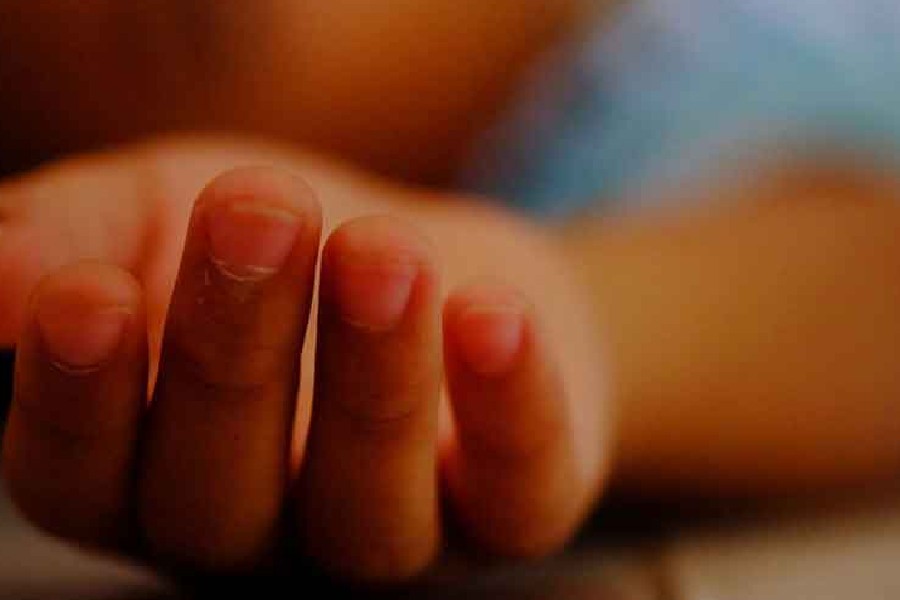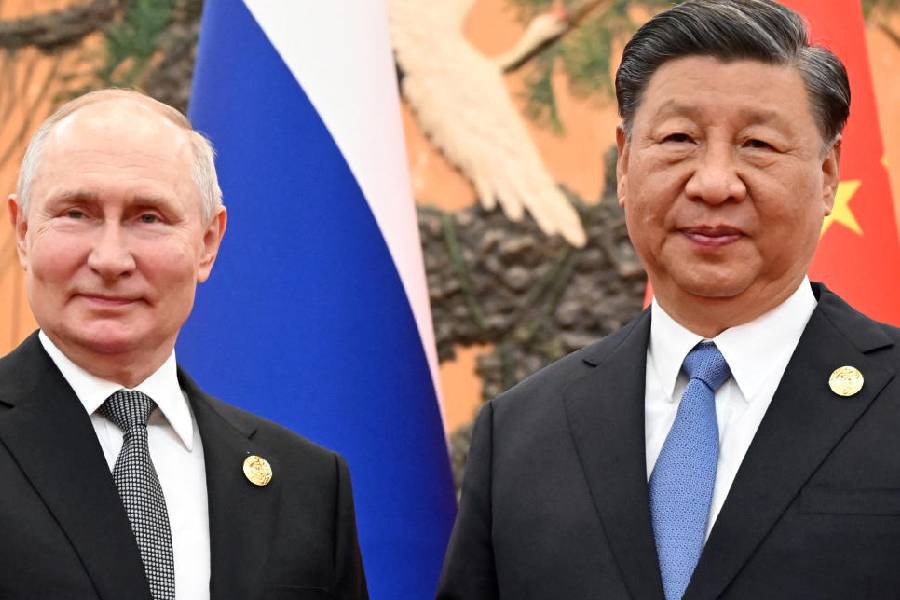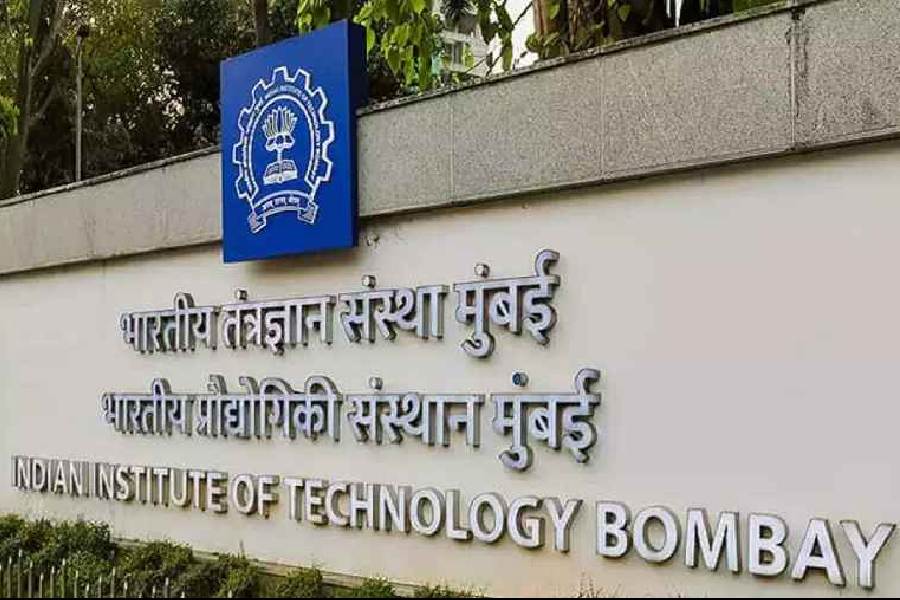Treat thy friends well
Sir — By warning Canadians of Arab or Pakistani origin against travelling to the United States of America, Canada’s foreign minister, Bill Graham, has paid the US back in its own coin (“New US immigration rules backfire after Canadian retaliation”, Nov 3). How can the US demand that any person born in Islamic countries like Iraq, Iran, Libya, or Syria be photographed and fingerprinted after arriving in the US? Accepting for argument’s sake that the US administration can impose any law it wants on its soil, how can it ask Canada to do the same? Is it Canada’s fault that it does not suffer from the same paranoia about Arabs as the US does? It is perfectly justified in thinking that its own immigration laws are stringent enough for dealing with such problems. Would the US have taken advice from its northern neighbour had the situation been reversed? George W. Bush is not gaining too many friends in his campaign against Saddam Hussein. Treating neighbours and allies with the same high-handedness and condescension that he reserves for Hussein may lose him the few he has left.
Yours faithfully,
Pabitra Dutta, Calcutta
Wretched of the earth
Sir — A cow’s life is more precious than that of five poor Dalits. Or so it would seem from the recent lynching incident in Jhajjar, Haryana. It is tragic that even after more than five decades of independence, Dalits and other lower castes in India continue to be victimized by the upper castes.
While this incident has made headlines, there have been other atrocities of even greater magnitude against the Dalits which have been conveniently hushed up. Countless cases of violence against scheduled castes and scheduled tribes have been booked under the Prevention of Atrocities Act, 1989 and very few of us are even aware of it. Ironically enough, most upper castes feel that Dalits belong to a “privileged class” since they are entitled to job reservations. But that is far from the truth —Dalits in government jobs are often harassed by their superiors. And private sector organizations, including the reputed ones, try to eliminate Dalit candidates on some technicality or the other.
Those responsible for victimizing Dalits should apologize and make amends, especially to pre-empt a Dalit backlash in the future.
Yours faithfully,
Richa Biswas, Calcutta
Sir — When will the sangh parivar acknowledge that the oppression of Dalits has been going on for a long time? Unless upper-caste Hindus are willing to treat lower castes with respect and as human beings, the cycle of violence will continue. J. Jayalalithaa’s proposed law against forcible conversions is unlikely to discourage Dalits and other backward classes from converting to more liberal religions like Christianity, Buddhism and Islam in the hope of having a better life.
Yours faithfully,
M.A.H. Imran, Hyderabad
Sir — Instead of converting to other religions, the relatives of the five Dalits who were killed in a lynching a few days ago should have fought against the prejudices of upper-caste Hindus and tried to help reform Hindu society (“Born again Saddam dares VHP”, Oct 28). The statements made by the converts clearly show that the conversions were a retaliation against the lynching. It will not be easy for the converts to adapt to their new religions. Will they get equal treatment from the members of their new religion and will they be able to climb up the social ladder?
The motives of Udit Raj, the organizer of the conversion mela, too seem suspect. He is probably driven more by political ambition than an altruistic desire to reform society.
Yours faithfully,
Vinay Upadhyay, Dibrugarh
Sir — Bishakha De Sarkar sums up the predicament of Dalits well in the report, “Shame” (Oct 27). The prevalent prejudice against Dalits makes them hide their identity, even in a so-called progressive city like Calcutta, so as to avoid being targeted by the upper castes. Given the magnitude of apathy against Dalits, Indian society badly needs a movement to bring about Dalit awakening. Conversion rallies like the one held recently in Gurgaon are welcome. Dalit activist groups could also consider fighting a legal and political battle for the imposition of a blanket ban on mentioning one’s caste and surname in official documents. However, this change cannot be affected as long as the reservation policy is in practice. That lower castes have been deprived of government jobs in spite of the existence of reservations is ample proof of the failure of this policy in promoting greater social equality.
The contribution of the backward classes to Indian society also needs to be highlighted.
Yours faithfully,
Sujit De, Sodepur
Sir — The tension between the backward classes and the Dalits may or may not have led to the Jhajjar incident. But it is true that, in Haryana as well as in Uttar Pradesh, an overwhelming number of Dalits still remain poor, while members of the backward classes have become affluent and politically empowered since the implementation of the recommendations of the Mandal commission. A survey conducted by the scheduled caste commission states that over 90 per cent of the bonded labour in UP belongs to the scheduled caste. Most Dalits are either landless or marginal farmers, while the bulk of the land is concentrated in the hands of the upper and backward classes, who siphon off the benefits of most of the schemes intended for Dalit welfare. However, increasing political awareness and the spread of education have made Dalits more assertive on issues of land re-distribution and minimum wages. This has brought them into conflict with the OBCs. In Bhojpur, the Bhumihars have put together a private army, the Ranabir Sena, to battle the Dalits. The Kurmis, another backward class, have their own armed hoodlums, the Bhumi Sena. The cynicism of those who had once fought against social injustice, together with the wave of caste consciousness in the wake of the Mandal commission report, has put on the backburner important issues like poverty, illiteracy, disease and exploitation.
Yours faithfully,
Surajit Basak, Calcutta
Sir — Intellectuals have tried to justify the conversion of lower-caste Hindus to other religions on grounds that the backward classes have become victims of untouchability and discrimination. Secularists also plead that had Hinduism not patronized untouchability, the question of conversions would not have been arisen in the first place. They do not seem to be aware that the caste system originated in the later Vedic period and was nothing more than a sophisticated division of labour. With time, this system became more rigid. But there were no atrocities on the backward classes during that time. In fact, many Hindu texts, like the Ramayana, are written by the lower caste.
That untouchability continues to exist in Indian society speaks volumes of the complicity of the present generation of politicians who have found in caste-based politics a way to increase their vote banks.
Yours faithfully,
Arvind D. Tapkire, Mumbai
Parting shot
Sir — The photograph showing Yuva Janata Dal (Secular) activists smashing the windshield of a car in Patna “in protest against rising crime in Bihar” was an ironic revelation (North Bengal edition, Oct 24). If this is the way of protesting against crime, then what is crime?
Yours faithfully,
Atul Joshi, Jalpaiguri










